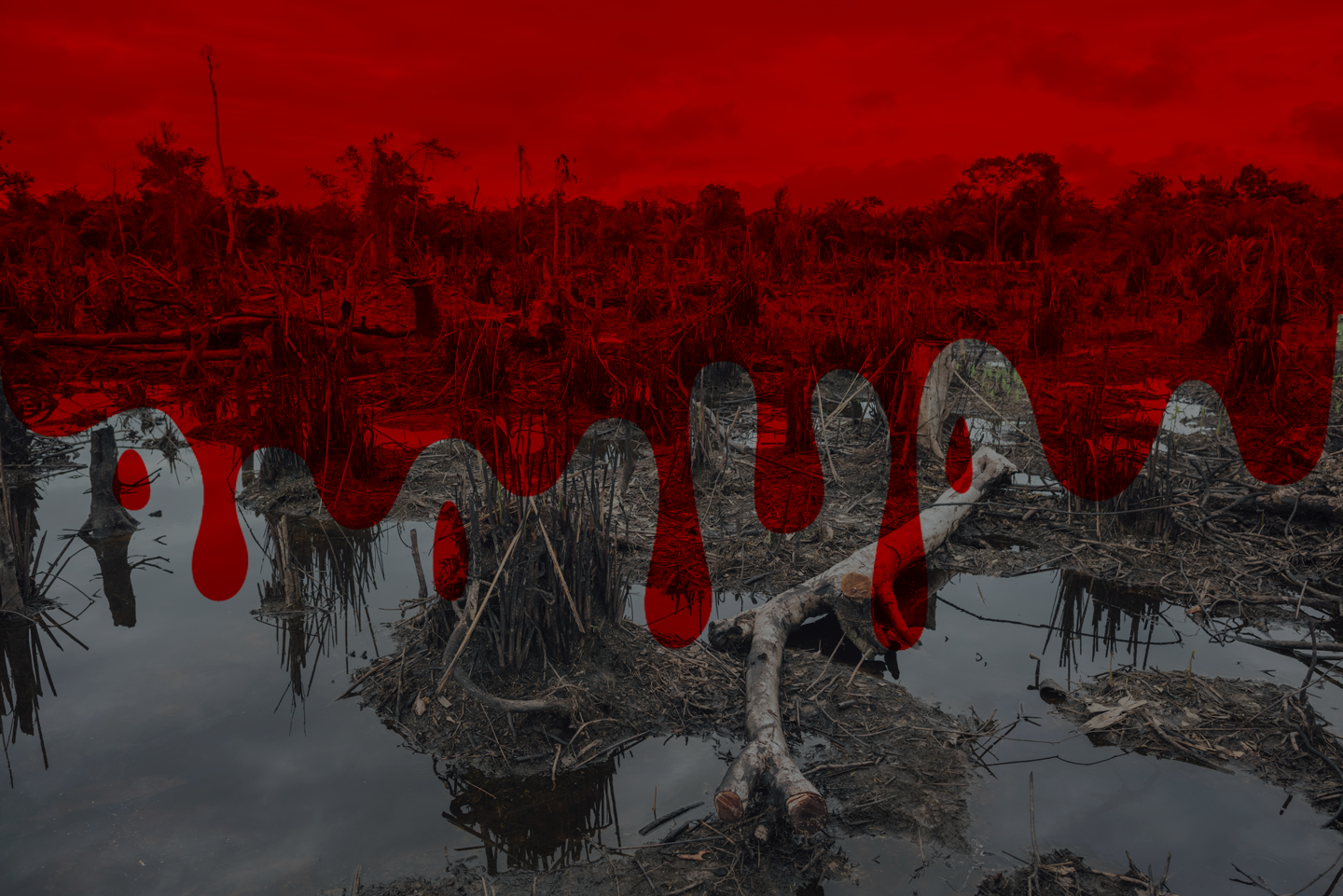
BLOOD OIL
Insuring the DRC oil Exploration is underwriting the destruction of the Congo rainforest

In July 2022, the Democratic Republic of Congo
(DRC) opened an auction for the exploration
rights for 30 oil and gas blocks.
This report highlights the explicit commitments and general environment, social and governance (ESG) policies of the insurance and reinsurance industry relating to the DRC oil auction, showing that the insurance and reinsurance for the oil blocks on offer is deemed to be expensive due to the shrinking property and casualty primary insurance available to the oil and gas companies, due especially to decreasing reinsurance capacity.
DRC oil exploration and extraction has been either directly excluded by or fallen within the general re/insurance company restrictions of seven of the 20 biggest fossil fuel non-life insurance companies globally – including four out of the top five property and casualty insurance companies. When it comes to the exclusion of facultative reinsurance, four reinsurance companies which have jointly collected over 40% of nonlife gross written premiums globally in 20211 have withdrawn their reinsurance capacity2. The Congolese Hydrocarbons Ministry and any oil and gas company planning to bid for exploration rights should see this as a clear warning against advancing with the auction.
All insurance and reinsurance companies should consider the risks that this auction poses to human rights, nature and biodiversity,
and climate, as well as the political and security concerns highlighted in this report. The sector must fully align with the Paris Agreement and basic human rights standards and make its policies public and explicit about this.
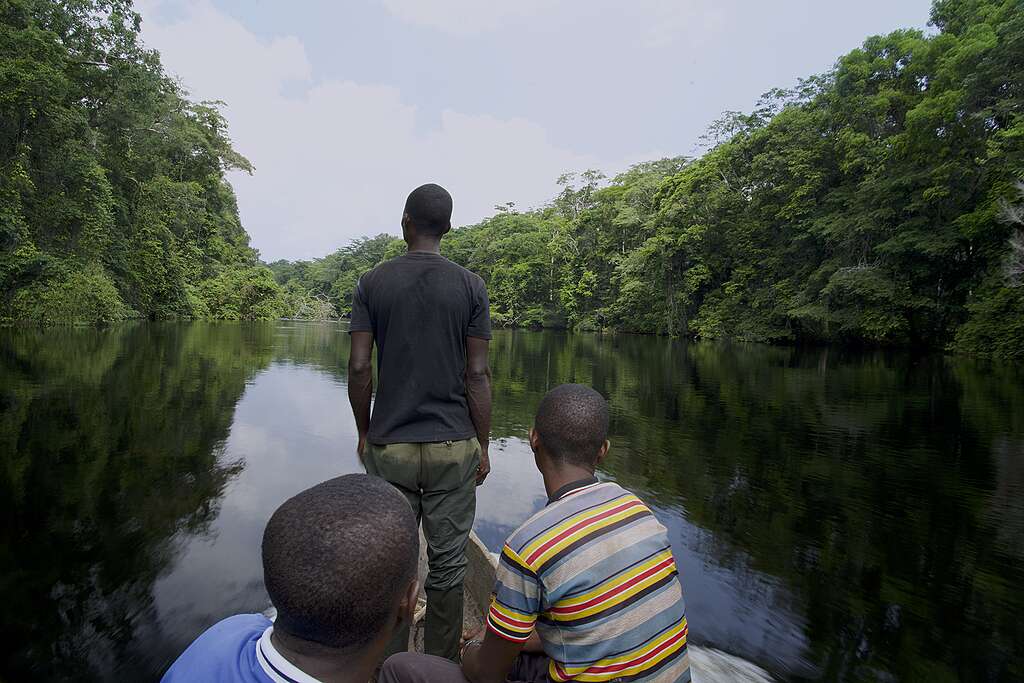
13 of the oil blocks overlap protected areas and national parks, including the UNESCO Heritage Site,
the Virunga National Park, contrary to the promises of Hydrocarbons Minister, Didier Budimbu. These biodiversity hotspots are home to elephants, gorillas, bonobos, zebras, Allen’s swamp monkey and the African dwarf crocodile3. Three of the blocks overlap with one million hectares of peatlands and all in all the oil concessions overlap 11.2 million hectares of rainforest.
“If destroyed by the construction of roads, pipelines and other infrastructure needed to extract the oil… up to 6 billion tonnes of CO₂ could be released, equivalent to 14 years’ worth of current UK greenhouse gas emissions,”
says Simon Lewis, Professor of Global Change Science at University College London and the University of Leeds.
-
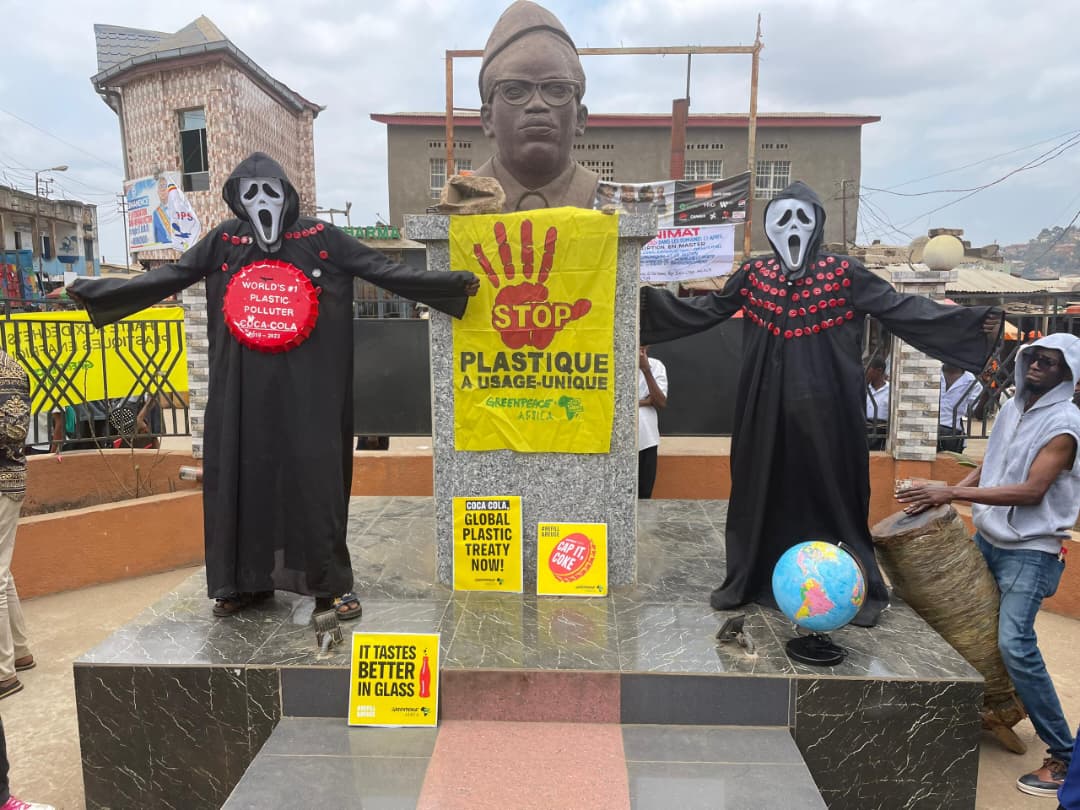
Matadi in action: Greenpeace Africa denounces Coca-Cola and calls for urgent action against plastic pollution
On World Environment Day, Greenpeace Africa volunteers in Matadi staged a symbolic and striking performance to denounce the destructive grip of plastic pollution and call out corporations fueling the crisis. At the centre of their action: Coca-Cola, named the world’s number one plastic polluter for the sixth consecutive year.
-
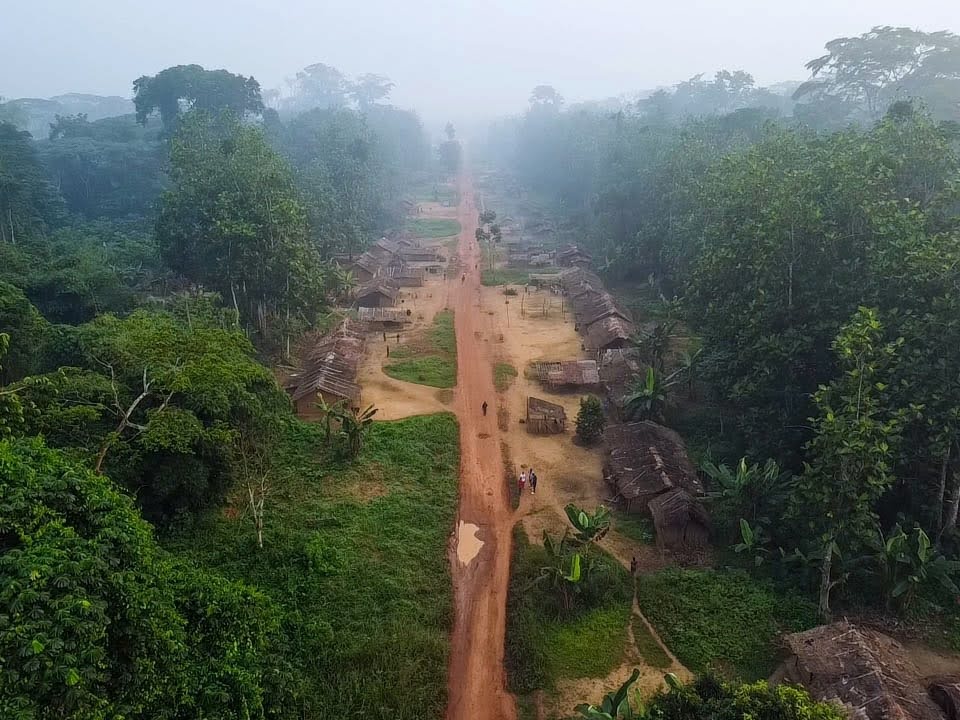
Travel diary from the heart of the Congo Basin: voices and hopes of indigenous peoples
In August 2025, Greenpeace Africa led an exceptional expedition to the heart of the Congo Basin, to the villages of Lokolama and Penzélé, as well as to Mbandaka, in Equateur Province.
-
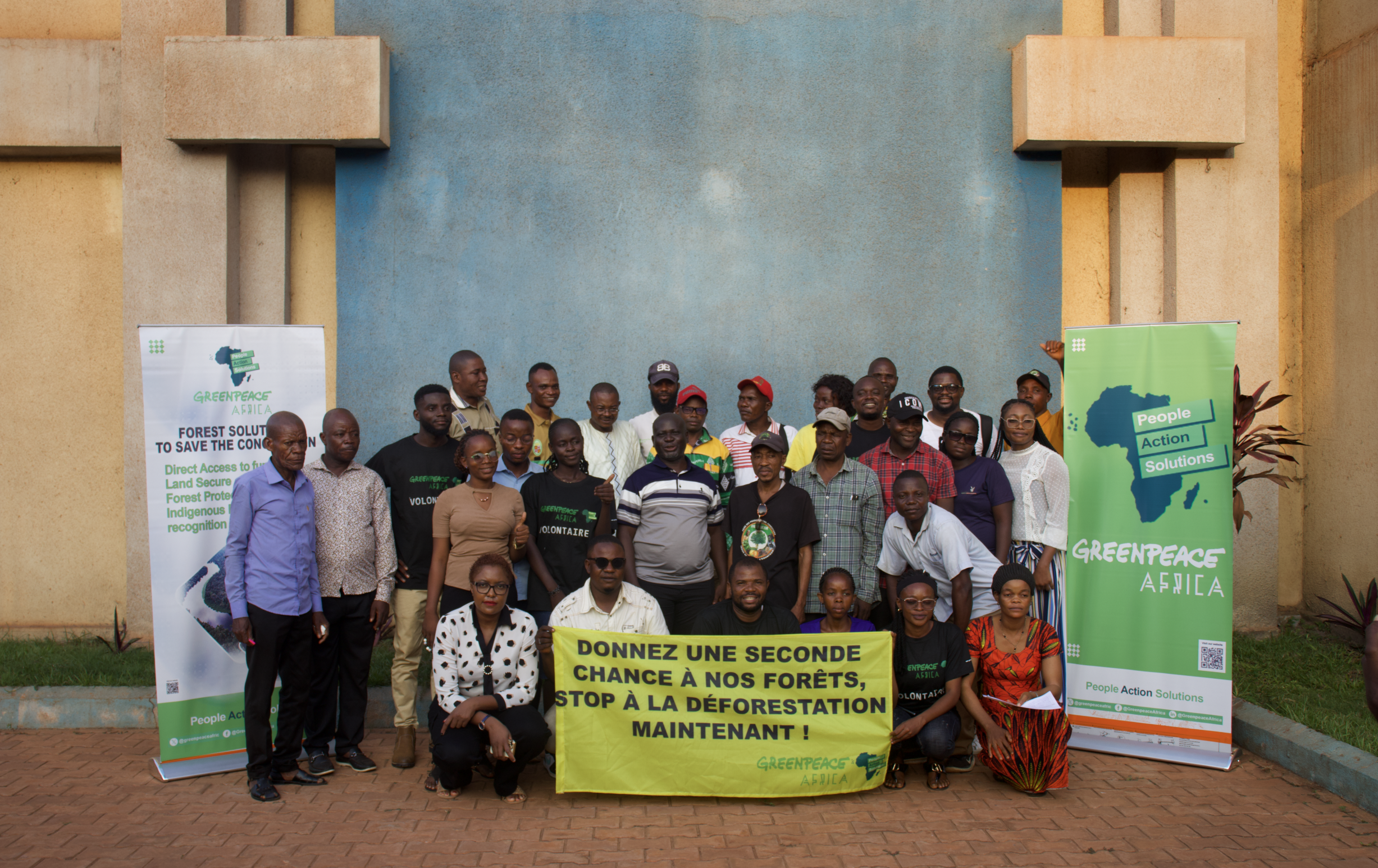
Greenpeace Africa concludes a landmark community experience-sharing workshop in Mbandaka, DRC, with strong calls for forest protection and food sovereignty
Mbandaka, 1 May 2025 – Greenpeace Africa has successfully concluded a two-day community experience-sharing workshop in Mbandaka, Democratic Republic of Congo (DRC), bringing together 20 Indigenous and local community leaders…
